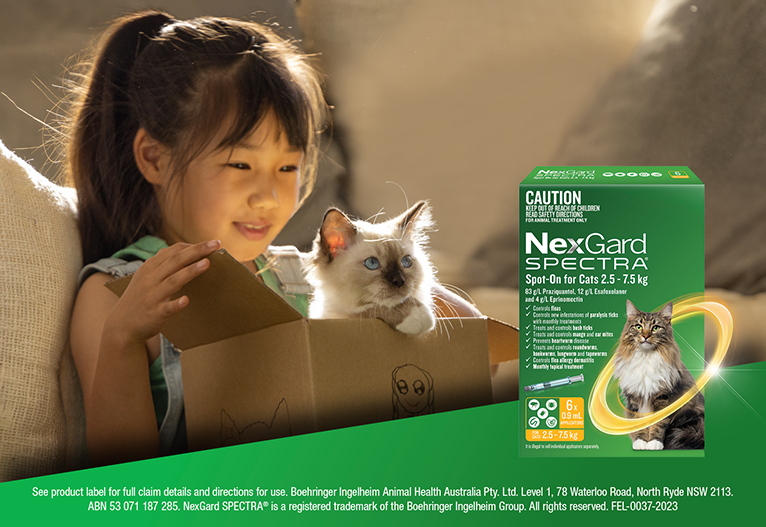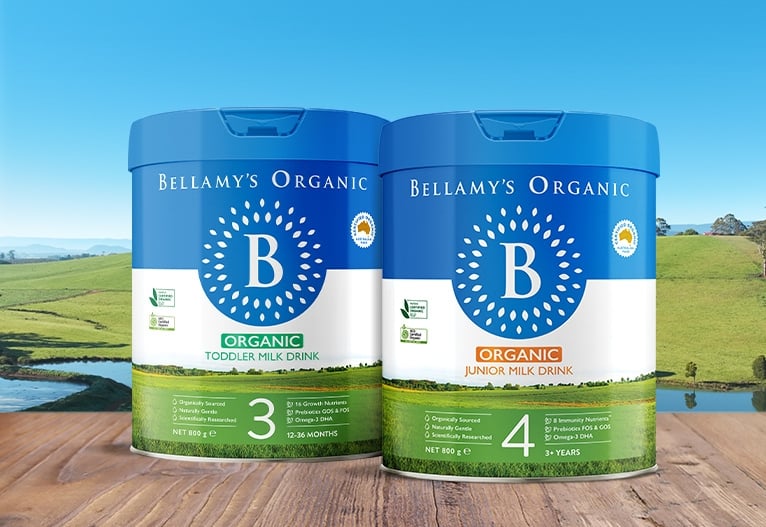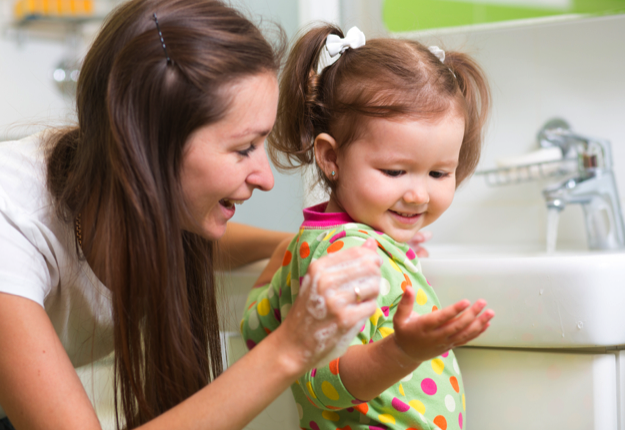Keeping your family safe isn’t limited to holding small hands when crossing roads and buckling little ones into booster seats.
With around 4.1 million cases of food poisoning in Australia each year*, good kitchen hygiene practices are and important part of looking after your family.
Why worry?
While grownups may only experience a little tummy upset following an unsafe meal, the immune system of your under 5’s are still developing making them vulnerable to food poisoning germs. Their tummies also make less acid so it’s easier for germs to survive their digestive system, invade their bodies and make them sick.
Sterilise
Protect tiny tummies from germs and sterilise all milk feeding equipment and dummies for at least the first 12 months. Bugs that like milk curds aren’t nice, so you don’t want them about. Boil, steam, microwave or chemical sterilisation are all good options, choose the one that suits you best.
Taming the dishcloth
There’s so much wiping up with little ones and to use disposable cloths or paper towels can be expensive. Consider these tips for good dishcloth hygiene
- Use separate cloths; one for floors, one for benches (tip: colour code them, I use green for floor and blue for bench top/tables)
- Use face washers for hands and faces. This’ll stop the floor cloth being used for the Vegemite face. Keep a small stash of clean face washers in a kitchen cupboard or drawer so they’re always on hand and throw into the wash regularly
- Keep dishcloths for ‘clean’ jobs and use disposable cloths or paper towel for ‘dirty’ ones, like wiping up raw meat juices, dirt and other yucky spills
- Let them dry out over night after a hot water rinse. If you can’t do this, soak them in bleach or nuke them in the microwave on high for a minute or so (they’ll need get to 70C or more, so use tongs so you don’t get burned)
- Give them a wash and line dry regularly. When putting a load I the washing machine why not throw the dishcloths in regularly for a refresh.
- If your dishcloths are always soggy and smelly in the bottom of the sink use disposable cloths instead and toss them out at the end of each day
Separate
Germs can easily spread via cross contamination. This is when raw foods such as meat, poultry, seafood and eggs come into contact with ready to eat foods like bread, fruit, vegetables and previously cooked foods.
Keeping these foods separate from the time you shop for them till the time you prepare them for a meal is important.
Here are some tips on keeping germs at bay:
- Use separate shopping bags for raw foods when bringing home your groceries
- Store raw meat on lower shelves and away from direct contact with ready to eat foods in the refrigerator
- Always use separate chopping boards, plates and utensils when preparing raw foods (colour coding boards can help)
- Never return cooked meat to the plate that was used to transport it raw.
Hygienic habits for all
Instil the foundations of safe food behaviour in your little ones by teaching them to wash their hands well after they have used the toilet and before they eat.
Set the standard as a great role model and make sure you always do the same.
Floods of water and too much soap may be the result, but this important activity not only instills the basics of good hygiene, but also provides the perfect transition to take them from play to the business of meal-time.
* http://www.foodsafety.asn.au/resources/
Are you very cautious with your food hygiene habits? TELL US in the comments below.





















10:00 am
2:00 pm
9:04 am
8:14 pm
9:07 pm
11:30 pm
7:14 pm
5:09 pm
-

-
-
-
mom94125 replied
- 17 Oct 2015 , 7:13 pm
Reply7:01 pm
4:04 pm
2:46 pm
9:49 am
9:38 am
8:35 am
6:50 am
12:42 pm
5:50 pm
12:52 am
3:29 pm
2:57 pm
- 1
- 2
- 3
- »
Post a commentTo post a review/comment please join us or login so we can allocate your points.